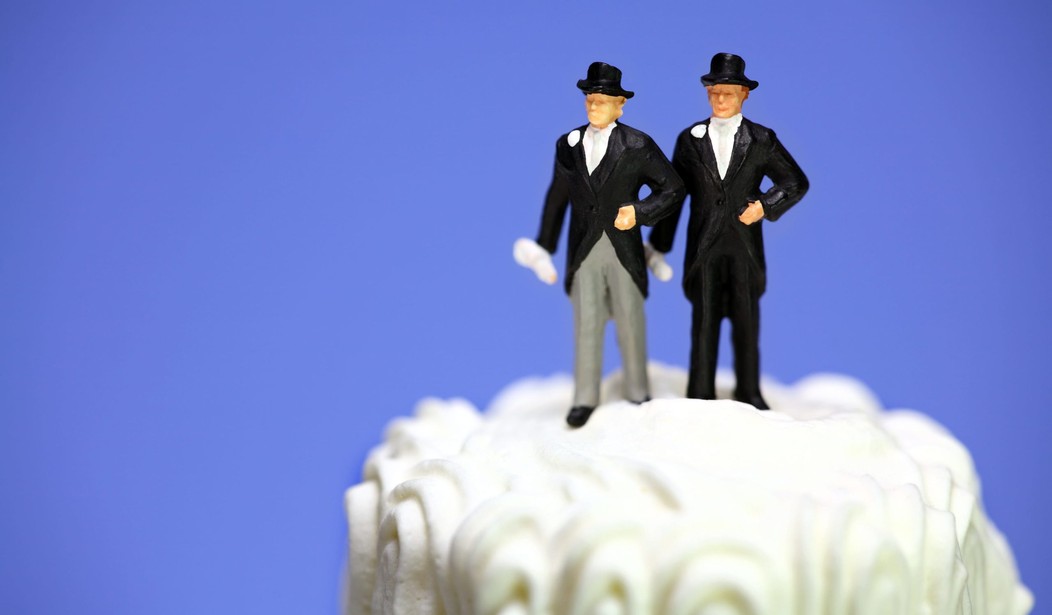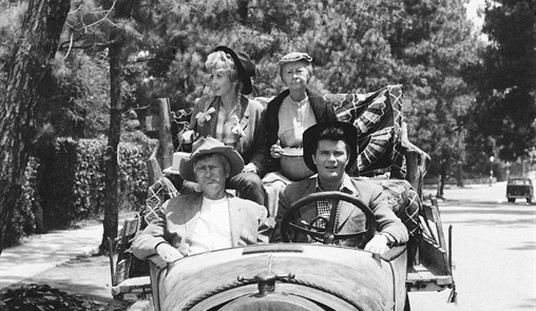On Monday, the Supreme Court ruled 7-2 in favor of Colorado baker Jack Phillips, who was sanctioned for refusing to bake a cake for a same-sex wedding.
Phillips, the owner of Masterpiece Cakeshop, was told by a Colorado Civil Rights Commission that he cannot refuse to bake cakes for events that violate his conscience, even though he had a long history of selling items in his cakeshop to anyone who walked through the door. Phillips, citing his Christian faith, said his conscience would not allow him to design cakes for events like divorce parties, lewd bachelor parties, or same-sex weddings.
Colorado ordered him to either make cakes for same-sex weddings or stop making cakes at all.
The Supreme Court ruled on Monday that “The laws and the Constitution can, and in some instances must, protect gay persons and gay couples in the exercise of their civil rights, but religious and philosophical objections to gay marriage are protected views and in some instances protected forms of expression.” Citing Obergefell v. Hodges, the justices wrote that the Commission’s treatment of Phillips’ case:
…showed elements of a clear and impermissible hostility toward the sincere religious beliefs motivating his objection. As the record shows, some of the commissioners at the Commission’s formal, public hearings endorsed the view that religious beliefs cannot legitimately be carried into the public sphere or commercial domain, disparaged Phillips’ faith as despicable and characterized it as merely rhetorical, and compared his invocation of his sincerely held religious beliefs to defenses of slavery and the Holocaust. No commissioners objected to the comments. Nor were they mentioned in the later state-court ruling or disavowed in the briefs filed here. The comments thus cast doubt on the fairness and impartiality of the Commission’s adjudication of Phillips’ case.
The high court said the Commission’s treatment of Phillips violated the First Amendment mandate not to base laws or regulations on hostility to religion.
“The government, consistent with the Constitution’s guarantee of free exercise, cannot impose regulations that are hostile to the religious beliefs of affected citizens and cannot act in a manner that passes judgment upon or presupposes the illegitimacy of religious beliefs and practices,” the justices wrote.
Justice Kennedy delivered the opinion of the court. He was joined by Justices Roberts, Breyer, Alito, Kagan, and Gorsuch. Kagan, joined by Breyer, filed a concurring opinion. There were various other concurring opinions on the case, with Justices Ruth Bader Ginsburg and Sotomayor filing the only dissents to the opinion.
While the decision is a victory for Phillips, it didn’t settle the question of whether others similarly situated would have the right to refuse to bake a wedding cake or participate in other expressive arts in violation of their conscience. The court merely said that Phillips was treated unfairly by the Commission.
“I don’t think ‘just stop being so overtly hostile to religiously-based beliefs’ is the easy fix some people think it is for Civil Rights Commissions. It appears ingrained, rather self-righteously, into the subculture,” legal blogger Popehat tweeted.
He added:
The notion is this: courts properly avoid answering Big Questions unless it is absolutely necessary to do so. That limits judicial power. The more judges can resolve issues gratuitously, the more power they have. This idea is inherent in the concepts of limited government and checks and balances, which I am reliably informed were once upon a time a thing. The core idea shows up in may doctrines: jurisdiction, standing, ripeness & mootness, and so forth. You may not like it now, but you will definitely like it when a court doesn’t go out of its way to resolve a Big Question in a way you don’t like. [Which, my liberal friends amongst you, is a real thing that can and will happen, maybe soon.] Narrow rulings also reduce the tendency of generations-long struggles to overturn rulings. Masterpiece Cakeshop, narrowly decided, is less a focus of let’s-flip-the-Court than a 5-4 sweeping decision.
In other words, not a lot has changed with this decision, except to get Jack Phillips out from under the thumb of the Colorado Civil Rights Commission, which received a sharp knuckle-wrapping from the justices. Far from being a monumental religious liberty decision, the narrow scope of the case means the larger issues will perhaps be left for a future Supreme Court to decide.
This article was edited to include additional background information and analysis.










Join the conversation as a VIP Member